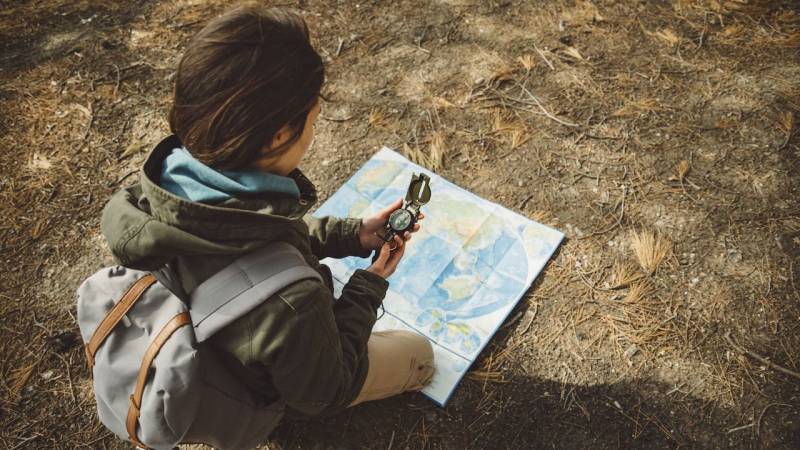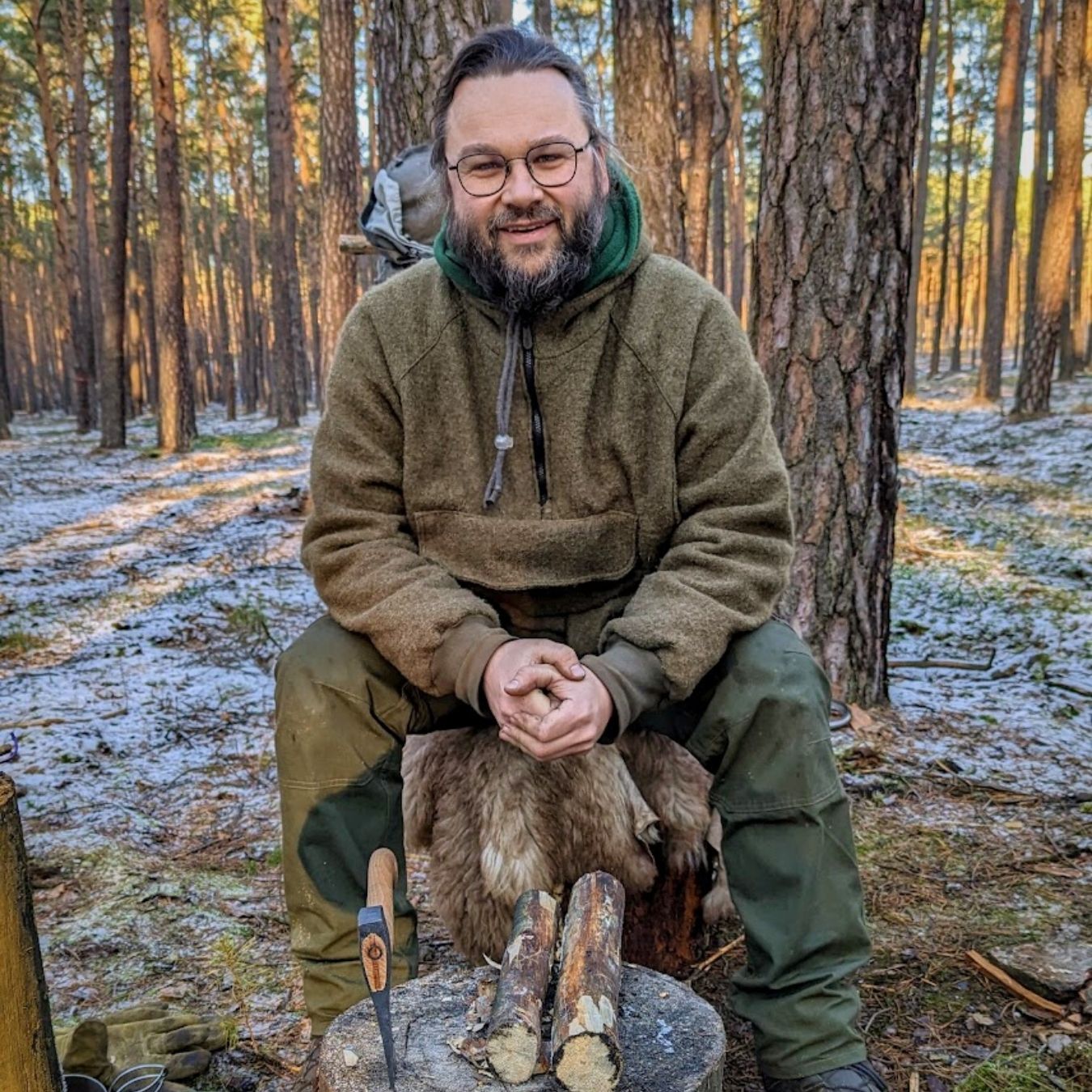
Outdoor skills
Noun
Meaning
Outdoor skills are the essential abilities and knowledge needed to thrive in the wilderness and outdoor environments. They encompass a wide range of practical and technical skills that enable individuals to navigate, survive, and thrive in nature. These skills include but are not limited to fire making, shelter building, foraging, navigation, first aid, and knot tying. Outdoor skills are crucial for anyone engaging in activities such as survival, bushcraft, camping, hiking, and wilderness exploration. They empower individuals to be self-reliant, adaptable, and prepared for any challenges that may arise in the great outdoors.

Examples
„I love spending time in the wilderness and honing my outdoor skills.“
„Having strong outdoor skills is essential for surviving in the wild.“
„My friend and I were discussing our outdoor skills and sharing tips on building a shelter.“
„Learning outdoor skills like fire-making and navigation can be challenging but incredibly rewarding.“
„I recently attended a workshop to improve my outdoor skills, and now I feel more confident in the wilderness.“
Origin
The word "Outdoor skills" originates from the English language. It is a combination of the words "outdoor" and "skills". The term "outdoor" refers to activities or things that take place outside, in nature or in the open air. The word "skills" refers to the abilities, knowledge, and expertise required to perform a particular task or activity.
The concept of outdoor skills has its roots in human history, as our ancestors relied on their ability to survive and thrive in the natural environment. These skills include various techniques and knowledge related to wilderness survival, bushcraft, and the ability to live off the land.
Over time, outdoor skills have evolved and adapted to changing environments and technological advancements. They have become more specialized and diverse, encompassing a wide range of activities such as navigation, shelter building, fire making, foraging, hunting, fishing, and many others.
Today, outdoor skills are not only essential for survival in extreme situations but also for recreational activities such as camping, hiking, backpacking, and adventure sports. They are valued for their ability to connect us with nature, foster self-reliance, and provide a sense of accomplishment and fulfillment.
Synonyms
Bushcraft, Wilderness skills, Survival skills, Nature craft, Outdoor knowledge, Backcountry skills, Primitive skills, Woodcraft
Antonyms
Indoor skills, Urban skills, City skills, Modern skills, Technological skills, Digital skills, Sedentary skills, Non-adventurous skills
Relatives
Bushcraft, Wilderness survival, Nature skills, Primitive skills, Survival techniques, Camping skills, Woodcraft, Navigation
Historical and cultural importance
Outdoor skills have a rich historical and cultural significance that spans across civilizations and time periods. Throughout history, humans have relied on their outdoor skills to survive and thrive in the wilderness. From ancient hunter-gatherer societies to modern-day adventurers, the ability to navigate, forage, build shelter, and start a fire has been essential for human survival.
In many indigenous cultures, outdoor skills are deeply ingrained in their way of life. These skills are passed down from generation to generation, preserving traditional knowledge and techniques. They are often tied to cultural practices, rituals, and beliefs, reflecting the deep connection between humans and nature.
Outdoor skills also played a crucial role in historical events and explorations. From the early explorers who ventured into uncharted territories to the pioneers who settled new lands, outdoor skills were vital for their survival and success. These skills enabled them to adapt to unfamiliar environments, overcome challenges, and establish thriving communities.
Today, outdoor skills continue to hold cultural significance as they promote self-reliance, resilience, and a deep appreciation for nature. They provide a means of reconnecting with our ancestral roots and understanding the fundamental skills that allowed our ancestors to survive in the wilderness.
Furthermore, outdoor skills have gained popularity in recent years as more people seek to disconnect from the modern world and embrace a simpler, more sustainable lifestyle. Learning these skills not only equips individuals with the knowledge and abilities to survive in the outdoors but also fosters a sense of empowerment, self-confidence, and a deeper connection with the natural world.
More information about the term Outdoor skills
Outdoor Skills: Mastering the Art of Survival in the Wild
When it comes to venturing into the great outdoors, having a set of essential outdoor skills is crucial for your safety and enjoyment. These skills, often referred to as bushcraft or survival skills, are the foundation of thriving in the wilderness. In this article, I will guide you through some of the most important outdoor skills that every adventurer should master.
Firecraft: Igniting the Flames of Survival
One of the most fundamental outdoor skills is firecraft. Knowing how to start a fire in the wild can mean the difference between life and death. From gathering tinder and kindling to using various fire-starting techniques such as friction fire or using a firesteel, mastering firecraft is essential for cooking, purifying water, and keeping warm in the wilderness.
Shelter Building: Finding Refuge in Nature
Building a shelter is another crucial outdoor skill. Whether you're caught in a sudden downpour or need protection from the cold, knowing how to construct a shelter using natural materials is essential. From simple lean-tos and debris huts to more advanced structures like teepees or snow caves, understanding the principles of shelter building will keep you safe and comfortable in any environment.
Navigation: Finding Your Way Home
Being able to navigate through unfamiliar terrain is a skill that can save your life. Learning how to use a compass, read maps, and navigate by natural landmarks such as the sun, stars, or moss on trees will ensure you never get lost in the wilderness. Additionally, understanding basic orienteering techniques and using GPS devices can provide an extra layer of security when exploring remote areas.
Foraging and Wild Edibles: Nature's Grocery Store
Knowing how to identify and gather wild edibles is not only a valuable outdoor skill but also a way to connect with nature on a deeper level. Learning about edible plants, mushrooms, and berries in your region can provide you with a sustainable food source in the wild. However, it's crucial to educate yourself about poisonous plants and practice responsible foraging to avoid any potential risks.
First Aid: Taking Care of Yourself and Others
Accidents can happen even to the most experienced adventurers. That's why having basic first aid knowledge is essential. Learning how to treat common injuries, perform CPR, and handle emergency situations can make a significant difference in the outcome of an accident. Carrying a well-stocked first aid kit and knowing how to use its contents is a must for any outdoor enthusiast.
Conclusion
Mastering outdoor skills is not only about survival but also about embracing the beauty and challenges of the natural world. By honing these essential skills, you'll gain confidence, self-reliance, and a deeper appreciation for the wilderness. So, whether you're planning a weekend camping trip or embarking on a long-term adventure, make sure to invest time in developing your outdoor skills. Remember, nature can be both a teacher and a playground, and with the right skills, you'll be able to navigate its wonders with ease.
Back to overview

